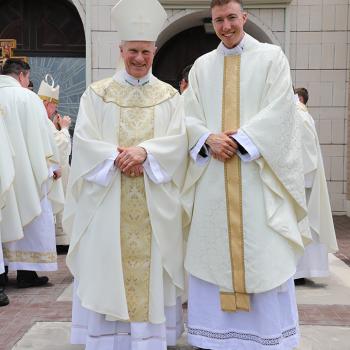When the Gospels are read we read about Jesus healing the sick, showing mercy, forgiving sins, and caring for the poor. These are all great things, and they should be emulated. However, within the confines of our western way of thinking we may miss things in the Gospel accounts that will help us get a better understanding. In 2005, Warren Carter wrote an article in the World & World Journal that shows the teachings of Jesus on relation to the Roman Empire in a new light. The title of the article is Proclaiming (in/against) Empire Then and Now, and it examines the relationship of the early Christians among the imperialism of the Roman world.
Some Words Of Jesus
One of the passages that Carter discusses in Matthew 5:38-42, but for purposes of this essay verses 39 and 40 will be discussed. Matthew 5:39-40 state, “But I say to you, Do not resist an evil doer. But if anyone strikes you on the right cheek, turn the other also; and if anyone wants to sue you and take your coat, give your cloak as well” (NRSV). We read this passage and a couple of things come to mind. One may conclude that Jesus was a passive individual who just wanted peace and would go to any length to achieve that end. Others may read this as a lesson of forgiveness, and come to the conclusion that no matter what evil is done against us that we should forgive and move on with our lives. The latter is the conclusion that most Christians would hold to, and it isn’t wrong. There is more to its meaning than meets the eye.

It is important to remember that when Jesus spoke these words Israel was a province of the Roman Empire. The empire was imperialist in nature, and was conquering new lands whenever it had the chance. The judicial system of the empire protected the elite, and punishments, often times, did not fit the crime. In describing this Carter writes, “Roman justice protected elite members but took harsh action against threat to structures. Punishments often fitted not the crime but the offender’s social status” (Carter 154).
Jesus And The Roman Occupation
History tells us that the Jewish people were not happy with Roman occupation, and this came to fruition in 70 A.D. when a full-blown revolt occurred. Now consider the scripture given within the context of a revolt. It seems out of place. However, peasant societies (such as ancient Israel) often expressed their discontent in a series of ways that the locals would understand but the occupiers would not. They may not greet a Roman soldier as they walk by, not pay their taxes, carry Roman military gear further than ordered, or sing songs against the occupying force (Carter 154). Another way, and one more applicable to the scripture being discussed is to “hand over an under garment as well as an outer garment” (Carter 154). At face value this seems like a kind gesture, but it is also a way of exposing the harshness of the occupying nation.
When seen in this perspective Matthew 5:38-42 is more than a passage about forgiving those who do wrong against you. In its historical context, Christ is calling out the unjust nature of the Roman occupation. An occupation where crucifixion was given to only non-citizens and those of low status who were a threat to the sovereignty of the state. When seen in this light, Matthew 5:38-42 shows another reason as to why Jesus was crucified.
WORKS CITED
Carter, Warren. “Proclaiming (in/against) Empire Then and Now,” Word & World 25/2 (2005) 149-158.
Holy Bible, New Revised Standard Version
O’ Collins, Gerald. Jesus: A Portrait. New York: Maryknoll, 2013













